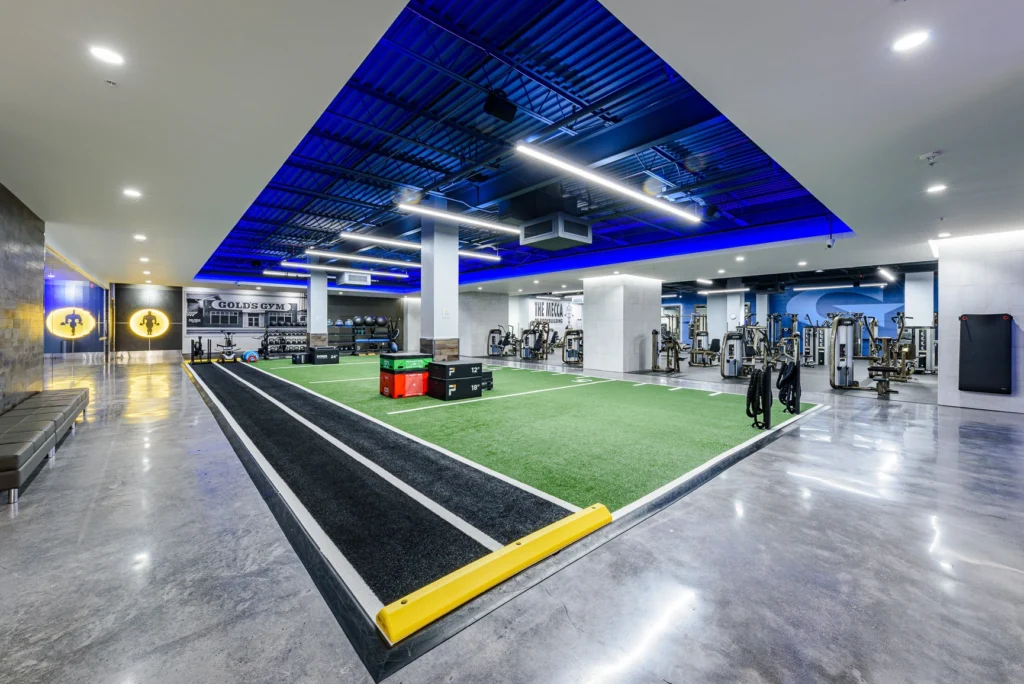As Gen Z Embraces Gyms, Questions Around Filming Etiquette Emerge

ATN explores the implications of a new gym culture that prioritizes capturing personal workouts on camera, often to the detriment of others
Gym etiquette is a cornerstone of fitness culture, typically emphasizing respect, safety and consideration for others. However, as digital technology becomes increasingly intertwined with our daily lives, traditional norms are being reshaped.
The presence of Gen Z – those born from the late 1990s to the early 2010s – brings a new dynamic into the gym. As true digital natives, this cohort has been instrumental in integrating social media into every aspect of gym culture – particularly their penchant for filming workouts.
In an era dominated by online sharing and visibility, what do fitness professionals and gym owners/operators need to know about the pros and cons of filming in the gym? And how can the industry meet Gen Z’s need to be seen while also respecting other patrons’ privacy?
Gen Z has been raised in a hyper-connected world. With smartphones in hand, they are consumers and creators, using platforms like Instagram and TikTok to document and share every aspect of their lives—including their fitness journeys.
This has led to “new” behaviors in gym settings, where filming workouts has become more than a “me thing”; it’s part of a broader social exchange and personal branding. While not relegated to Gen Z, they do — anecdotally — tend to drive the practice.
The implications extend beyond individual use. While Gen Z’s approach encourages a community-oriented perspective, where personal records and even setbacks are openly shared, recording one’s performance can be perceived as intrusive or distracting by others.
It highlights a cultural divide: younger gym-goers see filming as a natural extension of their fitness activities, while older members may view it as a breach of privacy or a disruption to the focused gym atmosphere.
Understanding these dynamics is crucial for fitness leaders and gym owners who need to manage a space that accommodates both traditional and modern expectations of what constitutes respectful gym behavior.
The Pros & Cons of Gym Footage
Like any controversial topic, filming at the gym isn’t an entirely good or bad practice. It’s also not difficult to find people who rally against it.
For example, Joey Swoll, a bodybuilder and fitness influencer who has about 7.7 million followers on TiKTok, makes it his mission to call out toxic gym culture, and mindlessly filming while working out is one of his favorite marks. He advocates for common courtesy and uploaded a video with the caption “If you can’t film with respect for others, don’t film at all.”
However, is it really this cut and dry? Joanne Groves, owner of Jo’s Fitness Club and course director for Faster Health and Fitness, London, takes a broader view.
“Filming workouts in public can indeed cause friction — people getting in the way, accidents and rudeness,” she says. “It’s important to consider the layout and rules of your gym. If you prioritize your clients’ experience, you must consider how filming might impact them.”
Groves also sees the advantages and says that catering to a younger audience that values social media can also attract more visitors to your gym.
“I’m guilty of filming, too,” she says, “but I’m always mindful of who’s around. I make sure to ask, ‘Is it okay if I do this?’ and I’ll move if it’s not okay.”
Groves mentions some helpful aspects to filming workouts, such as being able to inspire others, check form and more broadly expose a gym’s brand.

“It’s about finding the right balance,” Grove says. “A good strategy is being clear about who your primary clients are and setting specific policies. For instance, allowing filming only during certain hours and in designated areas can help manage the situation. This should be clearly stated in the membership policy to avoid misunderstandings. Additionally, having a rule that no one else should be in the shot without prior agreement is crucial.”
Legal Considerations
While having a mindful, polite influencer film their workouts in your gym may boost interest in your services, if you don’t also pay attention to how it’s affecting other members and clients, you may have quite a challenge on your hands.
Attorney Matthew Becker, owner of Gym Lawyers PLLC in Pittsburgh, specializes in helping fitness professionals navigate the legalities associated with entrepreneurship. He refers to filming at the gym as a “ticking legal time bomb.”
“Your members expect privacy,” says Becker. “If your gym becomes a free-for-all for photography, you risk violating that privacy, especially if someone in the background ends up in a social media post or an advertisement. Protect their privacy like your business depends on it – because it does. Use your membership agreement to set expectations and punishments around your privacy rules.”

While Becker says that “zero tolerance is your best defense,” he recommends consulting an attorney to make sure you’re doing your best to mitigate risks.
Without a policy in place, is it up to floor personnel to “police” influencers or others who claim territory for their footage? Groves recommends keeping the rule enforcement with management.
“Create a policy, let people know about it, and stick with it,” she says. “If an employee needs help with enforcement, step in.”
Mindful Filming as a Way Forward
Not everyone who happens to fall within the Gen Z demographic is a “terror on the treadmill.”
A recent positive example of an influencer filming herself in the gym is Chase Byrd, who posted a video on TikTok captioned “How to deal with people who walk in front of your camera and ruin your videos.” The footage captures Bryd doing a shoulder press exercise when a man interrupts her, stating that he needs to collect some weights but doesn’t want to disrupt her.
Byrd’s response? “If you’re recording your workouts, remember you are probably in the way and you need to be mindful (of) the people around (you).”
Her post has garnered almost 500,000 views, suggesting that people are noticing and want to engage in debate—and fitness professionals are in a perfect position to help define healthy boundaries around filming in the gym to help ensure everyone feels welcome.



